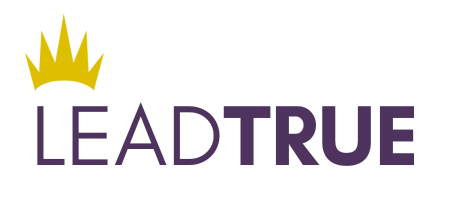The Future of Women in Leadership is Counting on Men
In the wake of the #MeToo movement it is understandable that men may feel a heightened sense of fear or anxiety when working with female colleagues. Although many of the reports of assault and harassment are blatant, there are some cases where men were caught by surprise, unaware that their actions made female counterparts uneasy, oblivious to the power imbalance present in the workplace.
The future vision is not that people have to walk on eggshells around each other or that the power imbalance shifts from one gender or group to another. Yet this new level of awareness does create a period of time where people may be more sensitive and discerning in their choices until treating all people with an equitable level of respect becomes second nature.
Because of our work with companies, our experience with inclusion and diversity programs, and our support of women focused on developing a fulfilling career, we have a request:
Men, will you please continue to sponsor, advocate for, and mentor women?
The risk in abstaining from 1-1 mentorship between a senior male leader and a more junior female employee is loss of opportunity for talented women whose careers will be hampered without mentoring, sponsorship and advocacy. If inclusion of talented women in leadership roles is a priority for an organization, the organization also will also suffer if men stop mentoring.
The bottom line is that avoiding mentoring women because you are nervous about your career perpetuates the problem and doesn't solve anything.
Of course there are lines that should never be crossed, and men do need to be discerning when mentoring younger women. The irony is that they don't have to be any more careful than women have known to be for decades. The rules of quality mentorship haven't changed. Now we are jointly accountable for them.
In the Forbe's article Are Men Afraid To Mentor?, the Center for Talent Innovation offers some practical tips:
Make meetings routine. Having a set schedule will support a quality mentorship relationship and demystify the relationship.
Meet in public. Choose coffee shops and restaurants that are well-lit and well-known. Choose times that support the workday, such as a breakfast meeting.
Put family first. Ensure that you share about your family when appropriate, so it doesn't feel like you are keeping personal or professional relationships secret.
Introduce significant others. Ensure that you introduce your mentees and team members to your spouse or significant other when appropriate, like at a holiday party or company event.
In her blog Men In Leadership Should Double Down On Meeting With Women: The New Rules, Lee Caraher outlines an expanded set of rules, some that are exceedingly obvious, for any questions that men may continue to have about what's appropriate or not.
From our experience and our mentorship best practices, we would add that it is essential to have clear intentions for the mentoring relationship. Set the goals for the relationship up front so that the purpose is clear, including the frequency and duration of time.
Another best practice we’ve seen demonstrated by companies like Allstate, Bank Of America, and Google is hosting group mentorship programs. This format provides a combination of group and individual support for both the mentees and the mentors.
Finally, we'd like to dispel the top 3 myths we hear about mentoring women.
Myth 1: If I make one, small mistake, my career is ruined.
If your intentions of the work relationship are clear, and you are respectful and transparent in your interactions, a minor offensive comment or joke can be addressed with communication. As Adam Grant says in a recent Linked In post, "Instead of running from discomfort, ask about it." Making a mistake one time does not end your career. However, a grievous choice that is assault or a constant pattern of chronically inappropriate behaviors is no longer tolerated.
Myth 2: Women can mentor women. Men don't need to anymore.
There are wonderful stories of how women mentoring women works very well to develop up-and-coming leaders. However, in some industries there are very few female leaders. In those industries, it's often the men who are also very involved in promotion decisions. Having only the few women at the top mentor all the up-and-coming women in the company or industry is infeasible. Additionally, if a young women is entering a predominantly male field, getting male perspective is highly important and valuable. Finally, in the future world of inclusive leadership, mentors cross gender, education, race, religion, political, and other lines.
Myth 3: I can't compliment or be nice to women. I have to watch everything I say.
The paranoia about not being able to say anything to anyone will lead to craziness. You can definitely compliment someone on their work or results and thank them for something they did for you. If you are being you, and your intent is professional, thoughtful, and kind, go for it.
Remember, harassment and inappropriate behavior is fundamentally about power, it's not about gender. Responsible men who are committed to true leadership, professionalism, quality relationships, and team effectiveness will be respectful in their interactions and tuned into the power dynamic, which will naturally create an equitable workplace.

